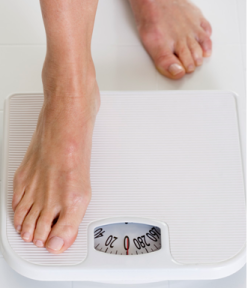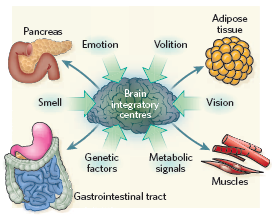Another excellent post. I think you made a great point about there being too much information and way too much misinformation about losing weight. The fantasy results that are depicted on television infomercials only worsen the matter. Like you stated people should focus on the factors that will influence the loss of fat- increased activity, improving eating habits, focusing on the positive, and stop obsessing over the number on the scale.
I think most people would be better off trading the scale for a tape measure since ultimately they are more concerned with their body’s circumference in certain areas more than the actual weight.
Weight Loss Goals: How to Set Realistic Weight Loss Goals
February 01 2010
It’s New Year again. And just like every new year, many of us have have made some weight loss goals. Unfortunately, for most, this may not be the first or the last time that you set a weight loss goal.
I think we have too many weight loss tips and diet books out there that the fundamental questions about weight loss get lost in the clutter and clamor. In this article, I will try to answer some of the basic weight loss questions which will help you set some realistic goals and understand the weight loss issues better.
When should I worry about losing weight?
I see a lot of people unnecessarily worrying about their weight. So, when should weight loss be a concern for you?

If your BMI >24.6 (overweight)
BMI >30 (obese)
or
If your waist circumference >35 (Women)
waist circumference >40 (Men)
If you are under these values, you are in the risk-free category for obesity-related problems.
As a side note, BMI values are not valid if you are an athlete or have a lot of muscle mass. Click here to find your BMI
I am over-weight. So how much should I lose?
Modest losses of even 5 -10% of your body weight is enough to see significant improvements in your health. Once you have lost the weight and maintained it for 6 months, you can think of losing further. Weight loss of 1-2 lb per week is reasonable and safe.
Why just 5-10% weight loss? Why can’t I shoot for larger weight loss?
You can and you will lose weight. But it has been painfully clear that most people who lose a lot of weight gain most of it back withiin 1-5 years. It is not weight loss but weight maintenance that is the greatest challenge we face. If weight loss is hard, maintaining that new lower weight is even harder. .
Why is it hard to maintain weight? Is it because overweight people are lazy?
No. Never. There is a social stigma associated with obesity and people often falsely associate obesity with gluttony and laziness.
Ever since the recent discovery of the hormone Leptin and other complex physiological mechanisms regulating bodyweight, we have come to realize that obesity is largely dictated by your genetics. Dr. Friedman who discovered leptin writes that the drive to eat for someone who lost a lot of weight is “analogous to consciously holding your breath; inevitably, your basic drive to breath dominates your conscious motivation”

Picture 1: The picture shows the complex regulation of feeding by genetics, metabolism, & behavior.
Our body weight is genetically predetermined to stay within a narrow range (10 – 20 lbs). The further we move from these values, the more powerful becomes our unconscious biological drive to come back to our set weight. This becomes very true in obese and morbidly obese individuals. Environment does play a role but it doesn’t account for the large proportion of marked individual variations within the same environment.
Of course, there are people who lose a lot of weight and maintain it. But they are highly motivated and are the exceptions as evident from the National Weight Control
Registry study.
What about diet composition? Should I do a high carb or a low carb diet?
As we suspected long back, recent studies have confirmed that diet composition matters the least. Whether it’s Atkins, Ornish or South Beach diet, the weight loss differences are negligible after a year.
A recent study which compared different diets and which received quite a few accolades concludes “Reduced-calorie diets result in clinically meaningful weight loss regardless of which macronutrients (carbs, fat or protein) they emphasize”.
I exercise 3-4 times a week. I am still at the same weight. Am I wasting my time?
No. Exercise helps the most in preventing weight gain and has an independent beneficial effect on your cardiovascular and metabolic profile (even without weight loss).
Ok, whatever. Can you just tell me how to lose 10lbs?
Instead of having a numerical goal, let your goal be a realistic behavioral change or a lifestyle intervention. If you make behavioral changes, the numbers can’t help, but follow.
If you want to lose weight ,and more important, maintain that 10lb weight loss, you have to change your food and activity habits. Remember weight loss is temporary, but weight maintenance is permanent. Examples of realistic behavioral goals are “exercising 6-7 days/week for 30 min”, eating more vegetables and fruits, drinking diet instead of regular soda and so on.
Related Articles
Anatoly | Tue February 02, 2010
Great article, Anoop.
How do you recommend to start the process?
Slow, graduate decrease of calorie intake week by week or jump at once to large deficit?
Anoop | Wed February 03, 2010
Thanks Aaron.
I have seen a lot of people who are unhappy because they didn’t lose enough to become lean and ripped.They are either disappointed at themselves or at the diet they tried. If they have tried to lose 5% of their body weight, they would would easily accomplished and maintained it too. But our perception of health is a six pack and a tiny waist and most will have to lose a lot to get there. We are just slowly realizing how complex and powerful is the homeostatic system which controls our weight.
Anatoly,
I would always say slow gradual decrease.
VLCD (500 - 800 cal diets) studies have shown that people who start out with VLCD tend to lose the same weight as someone who started with a moderate diet after a year. If you are morbidly obese or is obese and have serious health problems, then you might be a candidate for quick weight loss with bariatric surgery.
pattybirk | Sat February 06, 2010
Hi Anoop -
Great Article. I have a client - 80yr old - who is on diet after diet. Today he told me he is eating 20 grams of carbs a day for a belly fat diet kick start, 7-day program. I was dumbfounded that books are telling people to do this. Am I way off??? I read about The Ketosis Controversy “While people who advocate low-carbohydrate diets
say there is nothing wrong with a body going into ketosis”........really?
Also - it said…“Ketosis is a common part of low-carb dieting, but it isn’t a particularly pleasant one. If you find yourself having trouble getting through this period, there are some things you can try that might ease the symptoms.
* Snack regularly. Having a protein-rich snack like a piece of chicken may ease the headache and other symptoms.
* Take vitamins. Especially with the lack of fruits and vegetables on a low-carb diet, it’s vital to take a good vitamin and mineral supplement to keep your body in a healthy balance.
* Try a protein shake. Protein shakes with amino acid supplements can also be helpful for reducing the symptoms of ketosis and easing this transition. Many different kinds of amino drinks are available and often are marketed to body builders.
The most important thing to remember is that the feeling of ketosis symptoms is temporary and will pass within a week or so. Try to focus on the fact that this less-than-perfect feeling is just a sign that you are burning fat and well on your way to losing weight.”
Once again, I need your wisdom to forward to my client. Patty
Anoop | Sun February 07, 2010
Hi Patty,
There is no advantage of being in ketosis for fat loss. you can be in ketosis and if you eat a lot of fat, you can still get fat.
Ketogenic diet is great if you are an epileptic and is shown to be effective for reducing convulsions.
If he is 80yrs old and he is worried about his belly fat, I think it might help him more talking to a psychologist than a trainer. I think the bigger problem here is not the ketosis, but his not so normal behavior.
Dear Sir\mam,
Can you send me The banned exercise list those exercise harmfull our body.
With warms Regards,
lucky.
Anoop | Fri March 26, 2010
Hi Lucky,
Can you elaborate your post a bit? what do you mean by harmful exercises?
Overnight Lean Reviews | Fri December 07, 2018
We’re a bunch of volunteers and starting a brand new scheme in our community.
Your web site offered us with useful info to work
on. You have done a formidable task and our whole community can be thankful to you.

